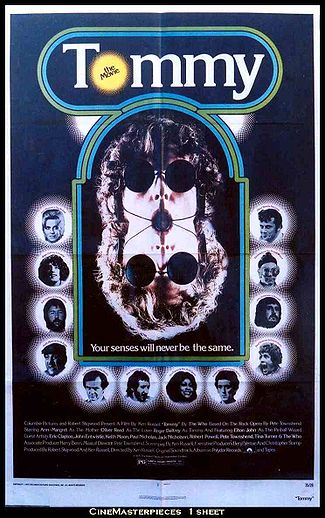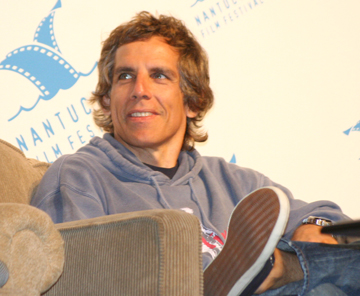|
|
||
|
Pro Tools
FILMFESTIVALS | 24/7 world wide coverageWelcome ! Enjoy the best of both worlds: Film & Festival News, exploring the best of the film festivals community. Launched in 1995, relentlessly connecting films to festivals, documenting and promoting festivals worldwide. Working on an upgrade soon. For collaboration, editorial contributions, or publicity, please send us an email here. User login |
"Web Junkie" Gets a Fix on Internet Addiction
A Chinese teen broods behind a barred window in a somber institution. Plainly there's something awry. "I'm in a lot of pain," the boy sobs from his dark bunk bed. What did you do?" he's asked. "I used the internet," goes his zombied response. Xi Wang wasn't expecting a three-month lockdown in military barracks: his father had tricked him into thinking the 16-year-old insomniac had a doctor's appointment. We learn that Wang, or "Hope," as he's called here, had been spending entire nights out playing digital games. The Hope we encounter is the very avatar of despair. So begins Web Junkie, a strangely gripping new documentary about internet addiction in China. Co-directed by Israeli filmmakers Shosh Shlam (Be Fruitful and Multiply, Last Journey into Silence) and Hilla Medalia (Dancing in Jaffa, Numbered), the movie unfolds in the Daxing Boot Camp just outside of Beijing. It's one of 400 rehabilitation camps that China has set up for 13 - 18 year olds whose recreational web usage exceeds six hours a day. China is the first country to classify internet addiction as a clinical disorder, and this quarter-day stretch is its official criterion of being hooked. The profile of the typical "electronic heroin" addict is unsurprising: male, moody and beset by problems in communicating, especially with uncomprehending parents. Most web addicts have also been suspended from school. And why not? Players of World of Warcraft have high IQ's, according to some of the assembled patients. Advanced cases, we're told, often wear diapers in order to avoid bathroom breaks that could affect their performance. One patient boasts that he logged 300 hours gaming, albeit not consecutively. "It's an abyss that's swallowing my son," says a mother about the second of three addicts we meet in the film. Nicky lost his parents' trust by repeatedly lying about visiting a friend and instead spending his nights -- until morning -- at an internet café. He eventually forfeited studies because of his habit. "If I had a better option, you think I'd throw you in here?" erupts his mother in a group therapy session. Her tearful lament is echoed by her husband's sigh that the son of a friend died in an internet café. Parents are required to live at Daxing for the duration of rehab, generally at the expense of their jobs and for a ballpark fee of $8,500. Presiding over the addiction clinic is Professor Tao Ran. His treatments run from military-style exercises, compulsory meds and patrolled cells to talking cures, deprogramming classes and monitored sleep and diet. "The social part of your brain stopped developing," he admonishes during a lecture. Dr. Tao traces the link between stunted emotional growth and the resulting cycle of fear, depression and anxiety that plays out in a craving for escape. Not all class instruction is so enlightened: in one bizarre scene we watch a singing drill with such verses as, "Chinese soldiers will conquer." A more visceral image finds Hope with a headful of electrodes measuring his brain acitivity. For viewers who associate some of the center's unorthodox psychological and militaristic methods with China's Communist-era exercises in controlling the masses, questions inevitably arise concerning the kids' human rights and the effectiveness of the treatments they're forced to undergo. The shadow of Chinese social policy and tradition hovers over Web Junkie. Consider the one-child policy, for instance: kids are lonely without sibs, and seek companionship of "another lonely person on the other side of the computer," as Hope puts it. Also, the long-standing emphasis on academic achievement has come at the expense of parental intimacy with their kids. Parents steeped in the disciplined ethos of a previous era are mystified by today's youth, whose interactions with foreign entertainment and values leave filial piety in the dust. Among the film's most affecting moments are the confrontations between the two generations as they take baby steps towards expressing buried emotions and towards rebuilding respect. Eighty percent of all Chinese are web addicts per the government's definition, as several patients state with some irony. Is it really true that web addiction is the "Number one public health threat to teenagers" that China claims? The answer may well be yes -- and not just in that country. It's nearly impossible to watch Web Junkie without thinking of someone you know. Perhaps in China your acquaintance or relative wouldn't qualify as an addict, yet the desperate craving on view may still be disturbingly familiar. All the more reason to see what the solitude of the screen can lead to. Just pray to the video gods that your web junkies don't, like the afflicted Chinese youth, prefer the virtual world to reality on the grounds that "reality is too fake." 
03.08.2014 | Laura Blum's blog Cat. : beijing china Chinese teenagers Daxing Boot Camp Documentary electronic heroin Hilla Medalia internet addiction Professor Tao Ran rehab Shosh Shlam Web Junkie Independent
|
LinksThe Bulletin Board > The Bulletin Board Blog Following News Interview with EFM (Berlin) Director
Interview with IFTA Chairman (AFM)
Interview with Cannes Marche du Film Director
Filmfestivals.com dailies live coverage from > Live from India
Useful links for the indies: > Big files transfer
+ SUBSCRIBE to the weekly Newsletter Deals+ Special offers and discounts from filmfestivals.com Selected fun offers
> Bonus Casino
User imagesAbout Laura BlumThe EditorUser contributions |






























